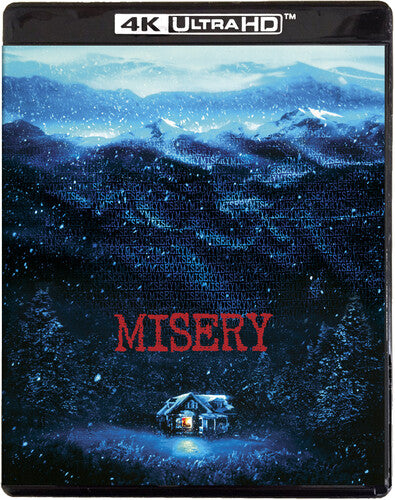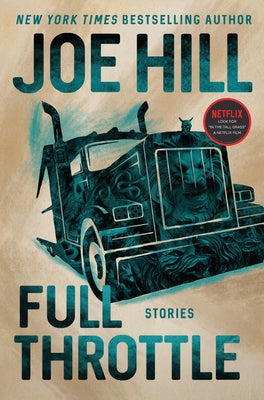Alien (4K Ultra HD)
$19.99
$26.99
Goosebumps 25th Anniversary Retro Set
$21.99
$29.99
Evil Dead 2 (4K Ultra HD)
$18.99
$22.99
Island of the Fishmen (Blu-ray)
$13.99
$21.95
Goosebumps Retro Scream Collection
$21.99
$29.99
American Gods: Seasons 1-3: The Complete Series (DVD)
$35.99
$44.98
Wrong Turn 1-5 (Blu-ray)
$25.99
$38.99
Dan Curtis' Dracula (Blu-ray)
$15.99
$19.98
Ghostwatch (Blu-ray)
$21.99
$29.95
It's a Wonderful Knife (Blu-ray)
$17.99
$25.99
Prometheus (4K Ultra HD)
$20.99
$30.99
The Thing (4K Ultra HD)
$23.99
$29.98
The Black Phone (4K Ultra HD)
$26.99
$27.98
Black Christmas (4K Ultra HD)
$31.99
$39.98
Misery (4K Ultra HD)
$28.99
$39.95
John Dies at the End
$12.99
$17.99
Jeepers Creepers Vol 1 Trail of the Beast
$14.99
$19.99
I Am Legend
$13.99
$18.99
House of Leaves
$37.99
$52.40
Hotline Miami: Wildlife Vol. 1
$12.99
$17.99
Horns
$5.99
$7.99
Highschool of the Dead, Vol. 7: Volume 7
$10.99
$14.00
Heart-Shaped Box
$15.99
$16.99
Hairspray and Switchblades
$10.99
$11.74
H. P. Lovecraft Cthulhu Mythos Tales
$10.99
$14.99
Goosebumps Retro Fear Set: Limited Edition Tin
$21.99
$29.99
Garth Marenghi's Terrortome
$12.99
$17.99
Full Throttle: Stories
$20.99
$27.99
Foxchaser
$14.99
$15.99
Find Him Where You Left Him Dead
$13.99
$18.99
Fallen Hearts
$7.99
$9.99
Evil Roots: Killer Tales of the Botanical Gothic
$12.99
$16.99
Dracula
$10.99
$14.99
Different Seasons: Four Novellas
$26.99
$37.40
Devils Highway Vol. 2
$7.99
$9.99
Dead Eleven
$19.99
$27.00
Coraline
$17.99
$23.80
Carved in Flesh
$7.99
$9.99
Cackle
$19.99
$27.00
Bridge of Souls (City of Ghosts #3): Volume 3
$12.99
$17.99
Bound Unto Root: The Golden Pith
$4.99
$6.00
Bored Gay Werewolf
$14.99
$19.99
Blood Set
$12.99
$16.99
Blood Set
$27.99
$29.99
Under the Dome
$35.00













































